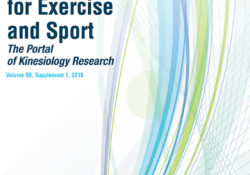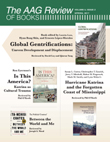eric.ed.gov har udgivet: As a part of the teacher licensure program at the graduate level at The University of Tennessee at Chattanooga (UTC), the M.Ed. licensure candidate is required to complete an action research project during a 3-semester-hour course that coincides with the 9-semester-hour student teaching experience or with school employment. This course, Education 5900 Culminating Experience, requires the student to implement an action research plan designed through (a) the Education 5010 Methods of Educational Research course, (b) a required learning assessment required during student teaching, or (c) a newly-designed project. The course is, also, taken by elementary and secondary teachers who are, already, licensed to teach. The action research projects, from spring semester 2017, are presented. This Action Research Project includes: (1) Student Transition into Ninth Grade (Jennifer Clemmer);… Continue Reading →
Like this:
Like Loading...
eric.ed.gov har udgivet: Today, mathematics education faces two major challenges: raising the floor by expanding achievement for all, and lifting the ceiling of achievement to better prepare future leaders in mathematics, as well as in science, engineering, and technology. Many students lack access to higher-level mathematics courses and teaching at all levels of pre-college schooling. This is unacceptable in the face of the ever-expanding technical demands posed by higher education and the 21st-century job market. Research reveals that strong academic experience is needed for both college and the workforce. Raising the cognitive demand in the curriculum is necessary for enhancing students’ career prospects. Recent trends show progress, but curriculum policies that limit course options restrict opportunities to learn for traditionally underserved students. This problem is compounded by the sorting of… Continue Reading →
Like this:
Like Loading...
eric.ed.gov har udgivet: The International Association for the Evaluation of Educational Achievement’s (IEA) mission is to enhance knowledge about education systems worldwide and to provide high-quality data that will support education reform and lead to better teaching and learning in schools. In pursuit of this aim, it conducts and reports on major studies of student achievement in literacy, mathematics, science, citizenship, and digital literacy. IEA studies, most notably Trends in International Mathematics and Science Study (TIMSS), Progress in International Reading Literacy Study (PIRLS), International Civic and Citizenship Education Study (ICCS), and International Computer and Information Literacy Study (ICILS), have set the benchmark for international comparative studies in education. These well-established studies have generated vast datasets encompassing student achievement, disaggregated in a variety of ways, along with a wealth of contextual… Continue Reading →
Like this:
Like Loading...
eric.ed.gov har udgivet: Politicians, academics, and business and community members all seem to be raising concerns that America is not as globally competitive as it once was. This is due, in part, to the fact that public schools in America are not producing high school graduates with the math, science, and technical skills to succeed in higher education or be employed in a knowledge-based, global marketplace. According to the Bureau of Labor Statistics, jobs requiring science, engineering or technical training will increase 24 percent between 2004 and 2014 to 6.3 million. However, less than half of high school graduates in the United States are academically prepared for college-level math and science. Between 1970 and 2010, America’s proportion of science and engineering doctorates will fall from 50 percent to 15 percent.… Continue Reading →
Like this:
Like Loading...
tandfonline.com har udgivet en rapport under søgningen “Teacher Education Mathematics”: Link til kilde
Like this:
Like Loading...
tandfonline.com har udgivet en rapport under søgningen “Teacher Education Mathematics”: Full Issue PDF Volume 5, Issue 2 Link til kilde
Like this:
Like Loading...
eric.ed.gov har udgivet: “Setting the Stage with Geometry” is a new math program aligned with the National Council of Teachers of Mathematics (NCTM) standards that is designed to help students in grades 6-8 build and reinforce basic geometry skills for measuring 2D and 3D shapes. Developed by The Actuarial Foundation, this program seeks to provide skill-building math activities to help students become successful in the classroom and in real-world situations outside of school. Link til kilde
Like this:
Like Loading...
tandfonline.com har udgivet en rapport under søgningen “Teacher Education Mathematics”: Full Issue PDF Volume 4, Issue 1 Link til kilde
Like this:
Like Loading...
eric.ed.gov har udgivet: Math in Common® (MiC) is a five-year initiative that supports a formal network of 10 California school districts as they implement the Common Core State Standards in Mathematics (CCSS-M) across grades K-8. This research brief explores how best to select or develop and use classroom observation systems in order to document instructional shifts and inform MiC school district improvement efforts. The report is organized into three main sections: (1) An exploration of what the research literature says about existing observation systems and several design considerations for successful observation systems; (2) A detailed discussion of several considerations of these findings for school districts as they implement observation systems in order to better track and understand how teachers are implementing the Common Core State Standards in Mathematics in their… Continue Reading →
Like this:
Like Loading...
eric.ed.gov har udgivet: Approximately 93 percent of Americans indicate that they experience some level of math anxiety. Math anxiety is defined as negative emotions that interfere with the solving of mathematical problems. Studies have found that some students who perform poorly on math assessments actually have a full understanding of the concepts being tested; however, their anxiety interferes with their ability to solve mathematical problems. Researchers believe that implementation of strategies to prevent or reduce math anxiety will improve the math achievement of many students. This Information Capsule summarizes strategies that teachers, parents, and students can use to prevent or reduce math anxiety. Link til kilde
Like this:
Like Loading...


